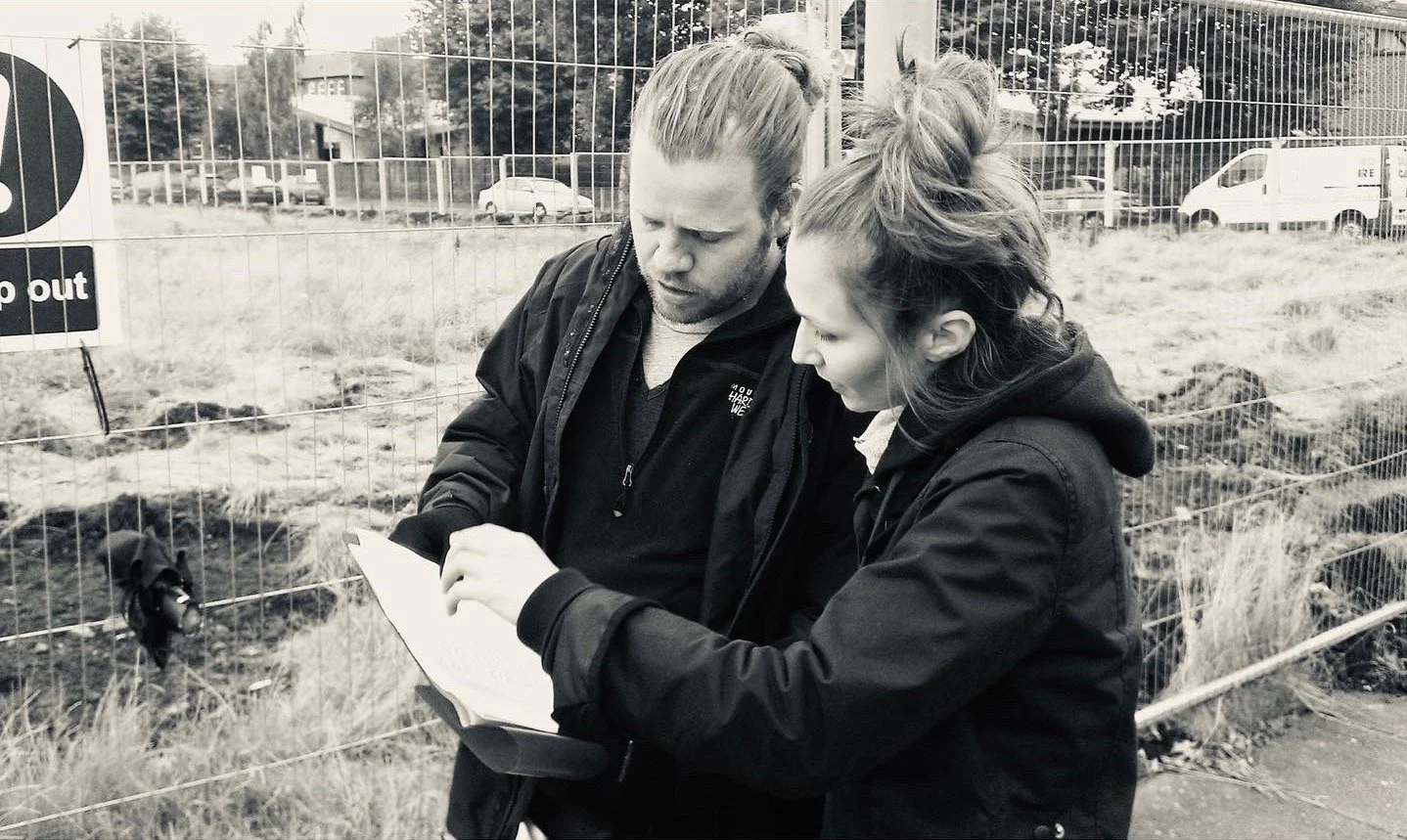Jacqueline Passmore is an award-winning artist, film director and producer based in London. Her films and installations immerse audiences in stories and sensory experiences which ignite moments of clarity and human connection. Passmore builds visually captivating, spare cinematic constructions which invoke vast narratives, inciting viewers to explore large ideas like empathy and perception. She is American-British and of Sámi descent.
Passmore’s work has been exhibited in over 30 countries, showcased by renowned institutions like Tate Modern, Berlinale Talents, Institute for Contemporary Art (ICA), Foundation for Art & Creative Technology (FACT), Tate Liverpool, Festival Internacional de Cine de Huesca, Aesthetica Film Festival, photographer Nick Knight’s showstudio, and music festivals like Coachella and EXIT Festival. In 2023, she launched Passmore Locher, a collaborative contemporary art practice with acclaimed architect Heidi Locher (Paxton Locher) to explore conceptual crossovers between cinema and architecture, with studios in London and Puglia, Italy.
In addition to her artistic projects, Passmore has directed and produced groundbreaking commercial films and installations for pioneering leaders in visual culture, such as the Design Museum, Zaha Hadid Architects, and Island Records. She has served as Head of Production for award-winning creative studios, including Faye Toogood’s acclaimed Studio Toogood with clients like Commes des Garçons and Hermès, and a research-led interaction design practice creating immersive activations for Adidas, Microsoft, and Nokia.
She began her career creating her own hand-manipulated film and video performances live on tour with musicians, including female-fronted electronic groups Stereolab and Ladytron. Touring internationally across Europe, Asia, and the Americas, these experiences of live mixing her films for mass audiences shaped her interest in narrative structure, the universal language of abstraction, and the collective intimacy of audiences and subcultures.
Passmore is fascinated by the generosity of minimal narratives, abstraction in storytelling, and collective sensory communion. Drawing on her deep knowledge of both analogue film and immersive digital technologies, she works seamlessly across moving image media - from short form narrative films to live video - infusing her work with tactility and immediacy. She has a reflexive relationship with moving image tools, modifying equipment and processes to reveal elemental phenomenon like feedback and light oscillation, exploring the constructs of moving image the way musicians experiment with sound. Counter to the culture of technical exclusivity in filmmaking, her work often exposes the mechanics of how films are made, opening cinematic grammar and narrative devices up to viewers as gently defiant offerings.
Grounded in lived experience and inclusivity, Passmore’s practice spans diverse communities and geographies - she’s shot projects in the post-industrial North of England, on tour across China, and in the West Texas desert, engaging in dialogue and collaboration with composers and symphony orchestras, veterans with PTSD, neurodiverse youth, visually impaired dancers, and psychiatric patients. Through these collaborations, Passmore explores how film and art can transcend boundaries and foster collective understanding. As an educator, she has shared her knowledge with institutions like FACT, British Film Institute (BFI), The Photographers Gallery, Art on the Underground, Tate Education, NHS Mental Health Trust and PhD / MA / BA programmes such as Liverpool John Moores University, School of Art & Design.
She studied film production in Austin, Texas, and photography in NYC, where she worked for Rolling Stone Magazine Chief Photographer Mark Seliger. As a film student in Austin she was an organiser of the celebrated Cinematexas film festival, helping to create a platform that Filmmaker Magazine called “the most promising and pioneering film festival in the world,” garnering support from the Andy Warhol Foundation and the National Endowment for the Arts (NEA).
Passmore’s work is supported by esteemed partners such as Kodak, Korg, Arts Council England (ACE), Berlinale Talents, British Film Institute (BFI), and the British Council, highlighting the industry’s recognition of her innovative approach to film, installation, and storytelling.
She is a Mentor through Creative Access, supporting talented people from underrepresented backgrounds in the screen industries.


